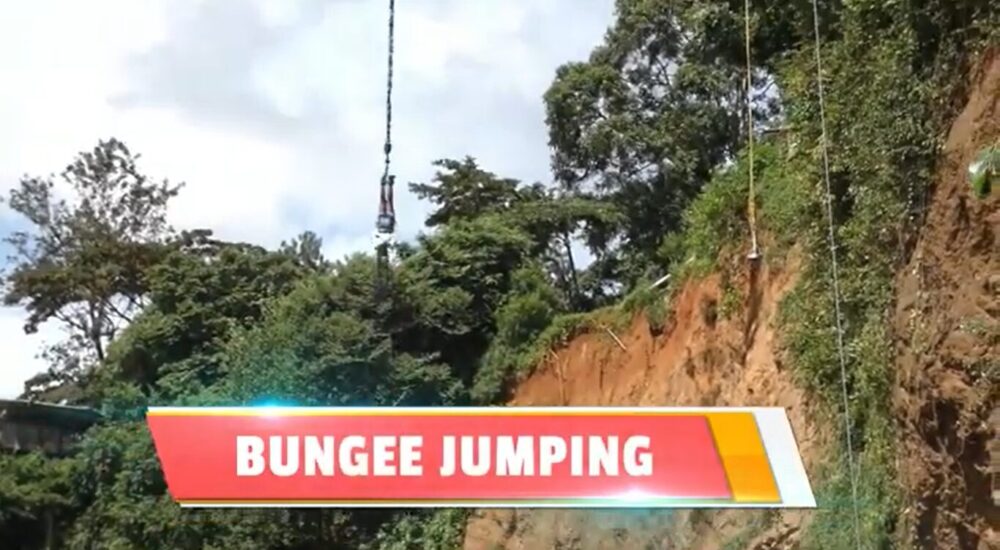Uganda, often called the "Pearl of Africa," is one of the most diverse and beautiful…
Why Visit South Africa in the Winter Season (May to September)
Why Visit South Africa in the Winter Season (May to September)
For the best animal viewing, travel to South Africa during the winter. You will also learn the local secret: mild winter temperatures are a welcome respite from the scorching summer heat in the humid bush. These are the top 15 reasons to think about winter travel to South Africa.
1. Fruitful Safaris
The greatest time to explore South Africa’s magnificent parks and reserves’ bush paths is during the winter months of June through August. Animals who are thirsty are drawn to waterholes by the lack of vegetation and the dry weather.
Safari celebrities like the Big Five (lion, elephant, buffalo, leopard, and rhino) are easier to identify as a result. Fortunately, lines of safari vehicles are not always the result of these favorable circumstances. Since they can combine animal viewing with a sunny vacation in the Cape Town area, many people opt to travel there during the summer.
2. Increased Accessibility
As South Africa’s normal winter temperatures decline, so does the demand for travel there, which results in low-season airfare and hotel rates. Particularly in May, there are some fantastic airfare offers to South Africa. Make your reservations three to six months before your trip for the greatest deals. During the winter school holidays in South Africa, airfares increase.
3. Calm Sceneries
Summer (November to March) is the busiest travel season in South Africa, with long lines for the Table Mountain cable car and crowded lodgings. Wintertime in South Africa is a completely different experience. There are serene beaches along the Garden Route, serene wine tasting rooms in the Cape Winelands, and pleasantly quiet museums in Cape Town. You may even gain exclusive access to some of the nation’s most well-known attractions and sites.
4. Adaptable Travel
Winter travelers have more freedom to take impromptu trips thanks to increased availability and cost. It’s not necessary to make all the reservations in advance and reserve lodging for each night before leaving home. You can play it by ear instead, determining which areas are popular and learning from other visitors to your lodging.
You can alter your plans and go hunting if you hear that there have been numerous big cat sightings in Kruger National Park’s central savannah. Reservations for farmstays, safari lodges, and wilderness campsites should typically be made by phone or email at least 24 hours in advance. However, you can simply show up at guesthouses, hostels for backpackers, and hotels.
5. Unexpected Sceneries
Even while South Africa is known for its sun, sand, and sea, the country also offers breathtaking views in the winter. From the high passes of the Drakensberg and Lesotho to the peaks surrounding Cape Town, it was exciting to see snow in mountainous regions. Locals who are starving for snow are watching for the white stuff.
From the Cape Canopy Tour’s zip lines, enthusiasts gush over witnessing the Western Cape’s Hottentots Holland Mountains beneath a fresh dump. The possibility of windy beaches and the Karoo semi-desert with a glistening layer of ground frost is another. Every winter, snowfall falls on Sutherland in the Karoo, which is said to be the coldest town in South Africa, with temperatures below 0°C/32°F.
6. Other Activities
Enjoying some thrilling outdoor sports is made feasible by the winter weather and snow on the ground. Do you want to go snowboarding or skiing in Africa? Southern snow bunnies visit the slopes of Afriski, a popular ski resort in mountainous Lesotho, from about June to August. Steer clear of the local school holidays for a more peaceful snow experience.
The whale-watching season also begins in winter. Southern rights can be seen from places like Hermanus, the top land-based whale-watching location in the world. The end of September marks the annual Hermanus Whale Festival.
7. Well-liked Activities
Hiking and diving, two hobbies for which South Africa is known, have significant benefits in the winter months. For both safaris and trekking, cooler weather is preferable. A cup of coffee quickly warms you up, even though it could be a touch cold in the morning. With temperatures below July highs, it’s more comfortable in the wilderness.
Early winter is one of the greatest seasons to surf well-known locations like Jeffrey’s Bay on the Atlantic and Indian Oceans. In July, it hosts its Open J-Bay competition. Between mid-June and mid-July, serious divers flock to the Wild Coast to witness the sardine run, which is the underwater counterpart of the wildebeest migration in East Africa.
8. Traveling Slowly
Speaking with South Africans and learning about their experiences is one of the highlights of traveling to the Rainbow Nation, which is home to people speaking 11 different languages, ranging from Afrikaners to Zulus. Winter provides a chance to interact with locals and enjoy genuine experiences in isolated mountain hamlets and calm seaside towns.
The busy manager will likely offer to “make a plan” if you request a table at a restaurant in Cape Town during the summer. Nonetheless, guests can choose from a variety of tables and receive recommendations from the waiter during the winter.![]()
9. Low Risk of Malaria
Kruger and other northeastern regions of South Africa (including Eswatini) are affected by malaria. However, because mosquitoes have a harder time hatching in the winter, the chances of getting malaria are at their lowest. Nets, DEET-based repellent, preventative medicine, and standard safety measures are still advised. However, there will be fewer bothersome insect bites for wildlife observers.
10. Activity of Animals
The bush’s four-legged residents definitely don’t hibernate in the winter, unlike Capetonians. Many natural rituals are brought about by winter. These include the rutting of impala, warthogs, and wildebeest, as well as the breeding of white vultures and wild dogs. White seringas bloom, and animals, including elephants, move to winter feeding sites.
11. Festival Pleasure
A variety of festivals, such as the 10-day Knysna Oyster Festival on the Garden Route, are held in South Africa to combat the winter blues. It takes place from late June to early July and includes live music, kids’ entertainment, a woodland marathon, and seafood extravaganzas. More culturally speaking, one of the biggest arts jamborees in the world, the National Arts Festival, is held concurrently in Makhanda (Grahamstown) in the Eastern Cape.
It is conveniently located near private game reserves and Addo Elephant National Park. Highlights of the fall and winter season include Knysna’s Pink Loerie Mardi Gras and AfrikaBurn in the Tankwa Karoo. Additionally, there’s the Franschhoek Bastille Day in the Winelands and the Comrades Marathon in KwaZulu-Natal, which is 90 km/56 mi long.
12. Entertainment Indoors
Winter is the ideal season to enjoy South Africa’s increasingly well-known culture, shopping, food, and wine. For boutique shopping, check out Cape Town’s V&A Waterfront or Johannesburg’s 44 Stanley. Additionally, there are the Norval Foundation and Zeitz MOCAA galleries in Cape Town. Both cities have the Neighbourgoods food markets. There are hundreds of Winelands tasting places to select from.
13. Travel via Car
With rain clouds hanging over Table Mountain and frost sprinkling the highveld surrounding Johannesburg, city dwellers long to travel outside in pursuit of sunny skies and quaint villages. Winter is the best time of year to create tracks because wildlife-rich regions like the lowveld, Karoo, and Kalahari are at their most serene and picturesque states.
14. Hospitality in Africa
South Africa has a long history of dorpie (small-town) hospitality, which may be found at country pubs, inns, restaurants, guesthouses, and safari lodges all throughout the country, from the bushveld to the Little Karoo. Winter is the ideal season to enjoy platteland (countryside) cosiness, with the door closed against the cold, a fire in the grate, and Karoo lamb on the menu.
15. Wintertime in Celestial South Africa
In the southern winter, even the heavens appear more beautiful. Aside from the advantages of traveling by land and sea during the colder months, lower temperatures also translate into better stargazing and clearer skies. Experience South Africa’s renowned astronomical reputation by going on a night-sky safari in Sutherland, the Cederberg range, Kgalagadi Transfrontier Park’s!Xaus Lodge, and other locations.


